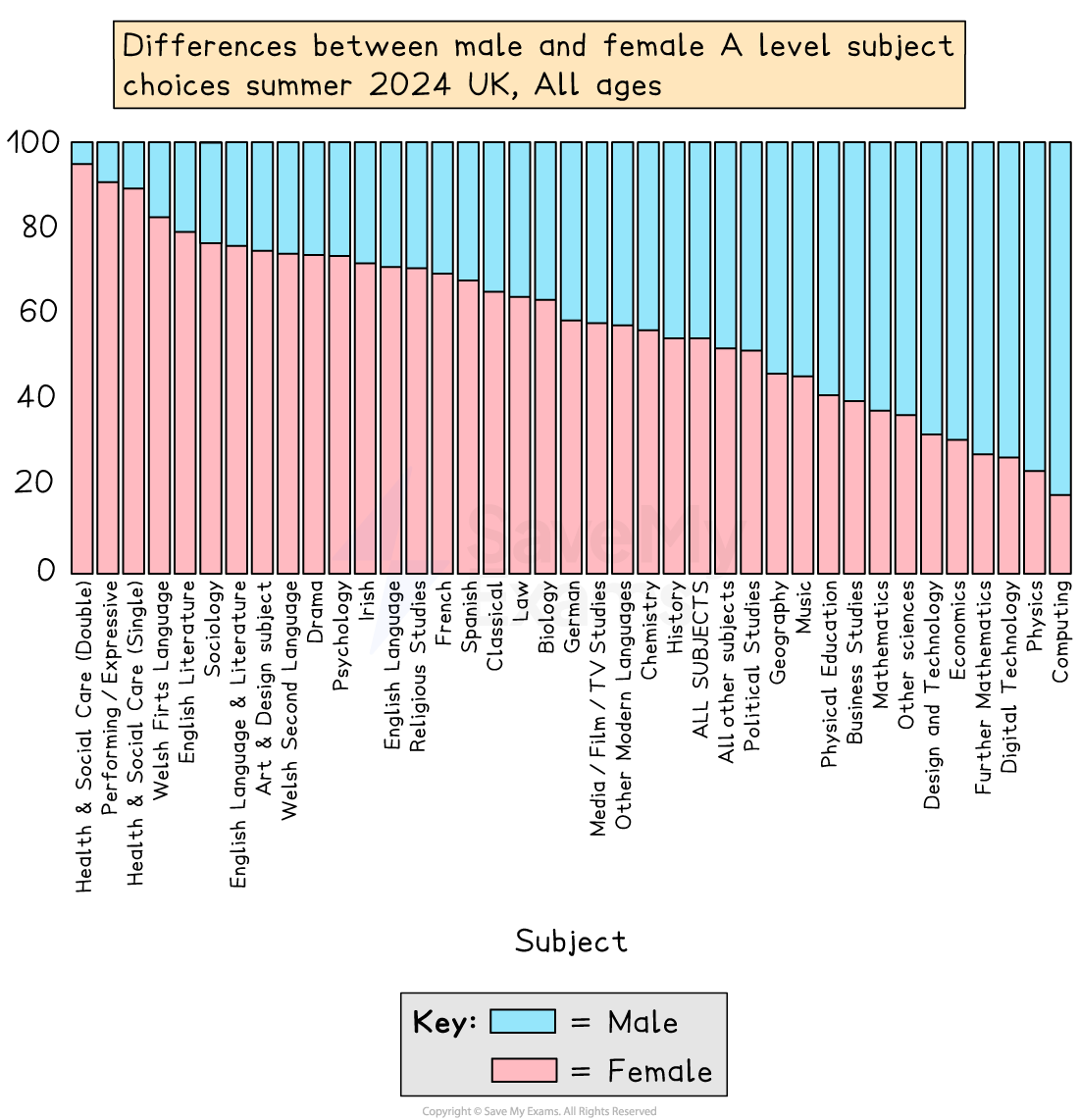Gender Differences in Subject Choice (AQA A Level Sociology): Revision Note
Exam code: 7192
Statistics on gender difference in subject choice
Although the gender gap in achievement has narrowed, there are still clear gendered patterns in subject choice
This is visible in both national curriculum subjects and post-16 education (AS/A Levels and vocational courses)
At the post-16 level, males are more likely to study subjects like computing, physics, further maths, and economics
Females are more likely to study sociology, English literature, and health and social care (JCQ, 2024)
Feminists believe the education system is patriarchal and largely controlled by men, which has an impact on gender-based differences in subject choice and career choice

Explanations of gender differences in subject choice
Gender role socialisation
Early socialisation encourages different tastes, behaviours and attitudes in boys and girls
Norman (1988): From an early age, boys and girls are given different toys and are encouraged to behave differently
Byrne (1979): Teachers reinforce gendered behaviour—boys are expected to be tough, girls to be helpful and tidy
These early experiences shape subject preferences later, e.g., boys favouring maths/science and girls preferring English/languages
However, these cultural pressures are less influential in single-sex schools
Gendered subject images
Some subjects are ‘gendered’ in how they’re presented
Science textbooks often depict male figures and use examples appealing more to boys (Colley, 1998)
Practical, mechanical equipment in subjects like DT can appeal more to boys; conversely, coursework and group tasks often favour girls
Teachers may also shape perceptions through the ways they deliver lessons or model gendered expectations
Peer pressure and gender identity
Pupils may avoid subjects that don’t match their gender identity due to fear of being judged
Paechter (2005): Girls choosing ‘masculine’ subjects like PE risk being labelled unfeminine
Dewar (1990): Girls avoiding sport because they fear being called "butch" or "lesbian"
This pressure reinforces traditional gendered choices
Gendered career opportunities
Gendered patterns in employment also shape subject choice
Fuller (2011): Working-class girls had ambitions that reflected traditional female jobs like childcare or retail
Women are over-represented in caring and service roles and under-represented in science/engineering careers
Career advice and work experience placements often fail to challenge these expectations
Gender and vocational courses
Vocational courses are even more gender-segregated than academic routes
E.g., childcare courses are dominated by girls; construction and engineering by boys
This reflects stereotypical assumptions about suitable ‘men’s work’ and ‘women’s work'
The Institute of Physics (2013): Girls in single-sex schools were 2.5 times more likely to choose A-level physics, suggesting that peer context and school type matter

Unlock more, it's free!
Was this revision note helpful?
